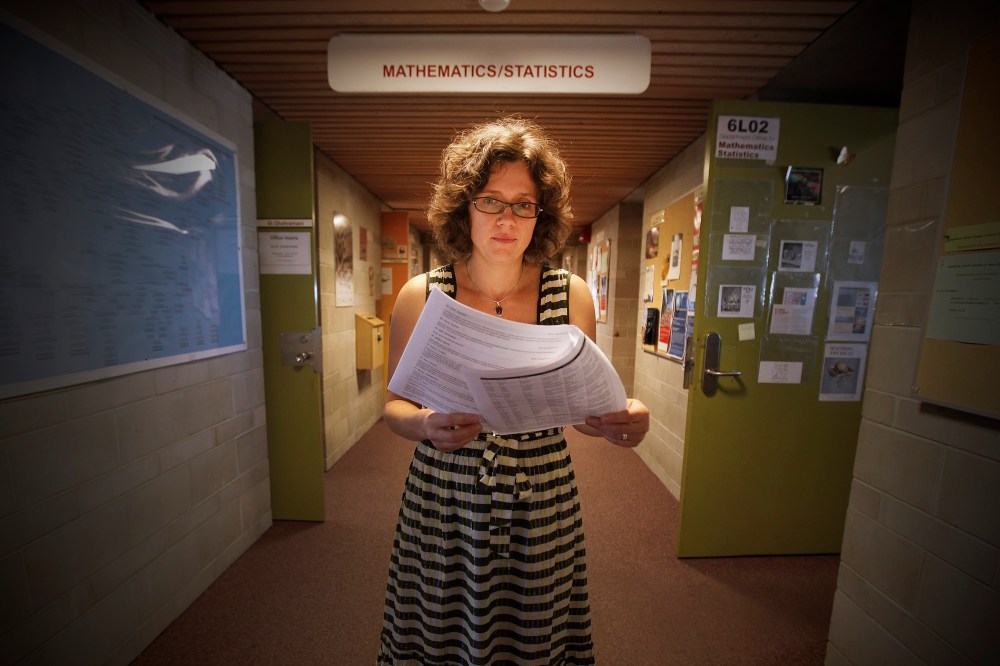Manitoba pulls plug on Grade 12 exams
Read this article for free:
or
Already have an account? Log in here »
To continue reading, please subscribe:
Monthly Digital Subscription
$0 for the first 4 weeks*
- Enjoy unlimited reading on winnipegfreepress.com
- Read the E-Edition, our digital replica newspaper
- Access News Break, our award-winning app
- Play interactive puzzles
*No charge for 4 weeks then price increases to the regular rate of $19.00 plus GST every four weeks. Offer available to new and qualified returning subscribers only. Cancel any time.
Monthly Digital Subscription
$4.75/week*
- Enjoy unlimited reading on winnipegfreepress.com
- Read the E-Edition, our digital replica newspaper
- Access News Break, our award-winning app
- Play interactive puzzles
*Billed as $19 plus GST every four weeks. Cancel any time.
To continue reading, please subscribe:
Add Free Press access to your Brandon Sun subscription for only an additional
$1 for the first 4 weeks*
*Your next subscription payment will increase by $1.00 and you will be charged $16.99 plus GST for four weeks. After four weeks, your payment will increase to $23.99 plus GST every four weeks.
Read unlimited articles for free today:
or
Already have an account? Log in here »
Hey there, time traveller!
This article was published 19/08/2022 (1205 days ago), so information in it may no longer be current.
Manitoba will discontinue Grade 12 provincial exams, a major step in revamping the K-12 system’s provincewide assessment schedule.
In lieu of distributing timed provincial exams to final-year pupils, the government plans to pilot a series of new standardized tests created by local teachers for Grade 10 students in 2022-23.
“There’s sort of relief,” said Marco Soares, an incoming Grade 12 student at Collège Sturgeon Heights Collegiate. “But at the same time, I have got to think forward in the future and basically, I wonder how that might impact the students who will be going to university next September.”
ETHAN CAIRNS / WINNIPEG FREE PRESS
Marco Soares said thinking about the high-stakes exams that await him in post-secondary education make him feel nervous and unprepared.
Soares, 17, wants to apply to the University of Manitoba to study political science, but he said thinking about the high-stakes exams that await him in post-secondary education make him feel nervous and unprepared. The fall term will mark three years since the Winnipeg teenager wrote his first and only traditional high school exams.
As educators grappled with COVID-19 disruptions, many adjusted their assessment approaches in response to student well-being and social distancing logistics.
The province called off its annual Grade 12 tests in the fall of 2020, after teachers raised concerns about the unnecessary stress exams would cause students amid a global health crisis. At the time, officials cited issues related to fairness and validity, due to the fact many students had not returned to full time in-class instruction.
Summative exams for mathematics, English language arts and French, worth up to 30 per cent of a senior student’s final grade in each given subject, have become staples in the K-12 system.
High school teacher Darcia Jones has advocated for a shift away from the current testing model throughout her career.

“I have long held the belief that an exit exam at the end of Grade 12 is not particularly helpful for teaching and learning… When those results come in, it’s too late for us to do anything about it,” said Jones, who teaches Grade 9, 11 and 12 English language arts in Winnipeg.
The updated exams should be diagnostic in nature to improve teaching and learning in a student’s final high school years, she said.
Jones noted she is confused about how English exams will be marked because the subject’s new curriculum framework does not use an “outcomes model” and instead focuses on student choice and variety in classroom instruction.
A spokesperson for Manitoba Education said the move from Grade 12 to Grade 10 responds to the K-12 commission’s calls to action.
“(It) creates an opportunity for divisions, schools, educators, and students to use the results of the evaluations to plan for continued student learning, to address student learning needs within their senior years programming, and to inform the allocation of resources both to proactive services prior to Grade 10 and responsive services,” they wrote in an email.
“I have long held the belief that an exit exam at the end of Grade 12 is not particularly helpful for teaching and learning.” – Darcia Jones
The K-12 commission, which began a wide-ranging, months-long review of the public education system in 2019, addressed the subject in recommendation No. 59 of 75.
The final report, released in March 2021, following a year-long delay due to COVID-19, suggests Manitoba create curriculum-based tests for mathematics and literacy at Grades 3 or 4, 6 or 7, and 10.
“Increase accountability and transparency through the implementation of provincial curriculum-based tests for mathematics and literacy (with a reading and writing focus) at Grades 3 or 4, 6 or 7, and 10, with school-level scores made available to the public,” states the recommendation.
“Some of the content for the questions used on the tests should be based on the science and social studies curriculum for those years.”
While mathematics professor Anna Stokke welcomes the new Grade 10 tests, she would prefer the province keep its Grade 12 assessment.

Some grading consistency will be lost without existing exams because every student’s mark on their standardized test was worth the same sum of their overall course average, said Stokke, of the University of Winnipeg.
“I always say, ‘You can’t fix what you can’t see.’ If we can’t see how our students are doing and if that information isn’t available to the public, then we can’t improve it,” she said.
Manitoba teachers are required to administer and mark formative assessments to measure students’ reading and numeracy levels in Grade 3 and Grade 4 (French immersion reading).
In middle years classrooms, similar tests are undertaken to assess whether Grade 7 learners meet number sense expectations. Eighth-graders are tested on their reading comprehension and expository writing skills midway through the academic year.
A government spokesperson indicated existing elementary school assessments will continue this year.
“I always say, ‘You can’t fix what you can’t see.’” – Anna Stokke
The future of those tests remains uncertain, as does the province’s decision on publishing school-level test results across the K-12 system.
The government’s latest blueprint for K-12 education states it plans to shift the provincial assessment program to include Manitoba curriculum-based summative assessments in early years, middle years and Grade 10.
In a prepared statement, Ewasko said the shift to Grade 10 timed, summative exams “provides an opportunity to intervene where necessary to build student success vs. an ‘out the door’ number or statistic,” said Education Minister Wayne Ewasko, in a prepared statement.”
James Bedford, president of the Manitoba Teachers’ Society, was not available for an interview Friday.
maggie.macintosh@freepress.mb.ca
Twitter: @macintoshmaggie

Maggie Macintosh reports on education for the Winnipeg Free Press. Funding for the Free Press education reporter comes from the Government of Canada through the Local Journalism Initiative.
Our newsroom depends on a growing audience of readers to power our journalism. If you are not a paid reader, please consider becoming a subscriber.
Our newsroom depends on its audience of readers to power our journalism. Thank you for your support.








